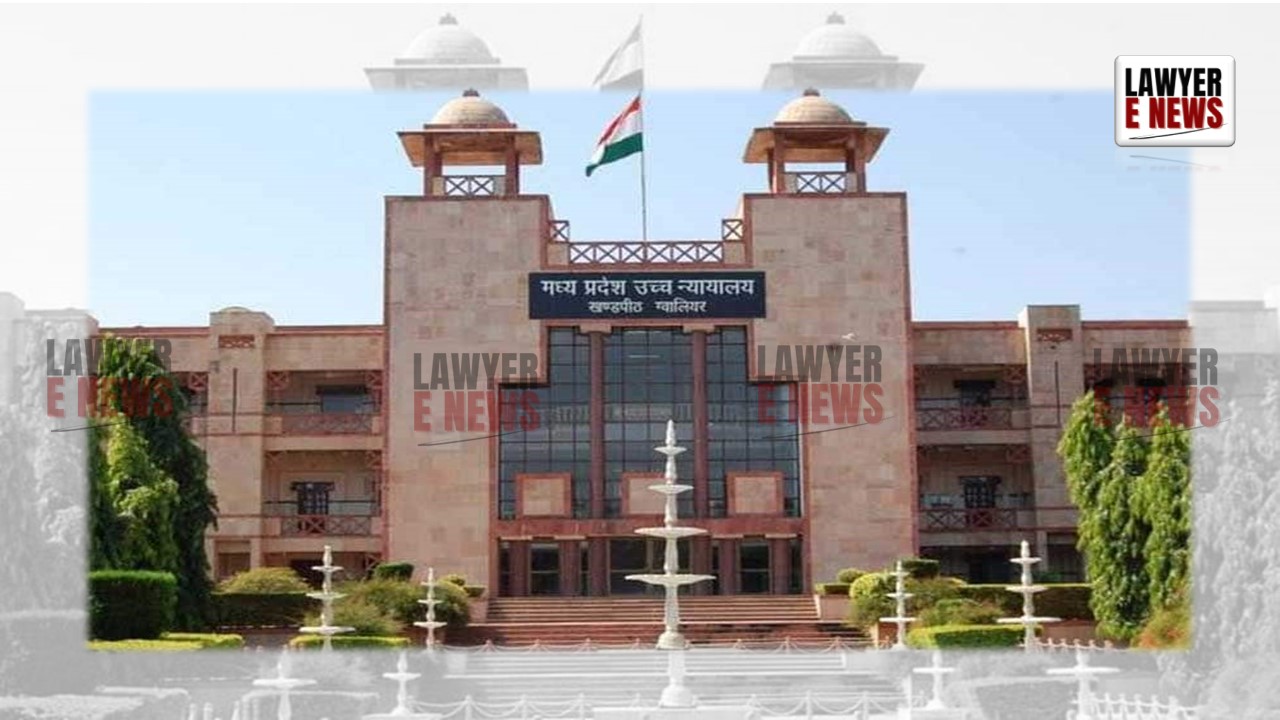-
by Admin
15 February 2026 5:01 PM



Madhya Pradesh High Court delivered a key judgment addressing the execution of interim maintenance orders under the Special Marriage Act, 1954. The Court, comprising Justice Sanjeev Sachdeva and Justice Vinay Saraf, dismissed the appellant's appeal, affirming the enforceability of interim maintenance orders under Section 36 of the Act.
"Orders Passed Under Section 36 are Enforceable Under Section 39A"
The appellant argued that interim maintenance orders under Section 36 of the Special Marriage Act, 1954, which falls under Chapter VII, could not be enforced using Section 39A, which applies to orders passed under Chapters V and VI. However, the Court held:
“An application under Section 36 of the Act can only be filed in proceedings under Chapters V or VI, and the order passed under Section 36 would thus be enforceable in terms of Section 39A.”
This ruling clarified the linkage between Sections 36 and 39A, emphasizing that maintenance orders under Section 36, though part of Chapter VII, are directly connected to proceedings under Chapters V and VI, making them enforceable through Section 39A.
The appellant and respondent were estranged spouses, married under the Special Marriage Act, and living separately since 2016. The appellant had filed for divorce, during which interim maintenance of ₹6,000 per month was awarded to the respondent under Section 36. After the divorce petition was dismissed, the appellant contested the enforcement of this interim maintenance order in execution proceedings initiated by the respondent.
The non-enforceability of the maintenance order under Section 39A.
An adjustment claim for payments made in separate Domestic Violence Act proceedings and cash deposits.
The core issue was whether interim maintenance orders under Section 36 could be executed through Section 39A. The appellant argued that Section 39A was limited to orders under Chapters V and VI, and hence did not apply to orders under Section 36, located in Chapter VII. However, the Court found that Section 36 is intrinsically tied to proceedings under Chapters V and VI.
“An order passed on an application under Section 36 of the Act would be an order passed in a proceeding under Chapters V or VI, and therefore, enforceable under Section 39A,” the Court noted.
The appellant sought adjustment for ₹48,000 deposited during a separate domestic violence proceeding, along with ₹2,90,000 claimed to have been paid in cash. The Court allowed the adjustment for ₹48,000, finding documented proof of the deposits, but rejected the cash payment claim due to lack of evidence directly linking the cash to the maintenance order.
“No material has been produced to substantiate that the amount of ₹2,90,000 was directly paid for maintenance under the relevant order,” the Court ruled.
The appellant also argued that the execution petition was time-barred. However, citing Article 136 of the Limitation Act, 1963, the Court confirmed that the 12-year limitation period applied to execution petitions, and interim maintenance created a recurring cause of action.
“The order of maintenance creates a recurring cause of action enforceable on a monthly basis, and the second execution petition was valid since the first was withdrawn without being decided on merits.”
The Court referenced Shivashankar Prasad Shah v. Baikunth Nath Singh (1969) and Bhagyoday Cooperative Bank Limited v. Ravindra Balkrishna Patel (2022) to support its conclusion that a second execution petition can be maintained after the first is withdrawn without adjudication on merits.
The Madhya Pradesh High Court upheld the interim maintenance order, dismissing the appellant’s objections and allowing only a limited adjustment of ₹48,000. The second execution petition was deemed valid, and the Court rejected the appellant’s claims of res judicata and limitation.
Date of Decision: 15 October 2024
